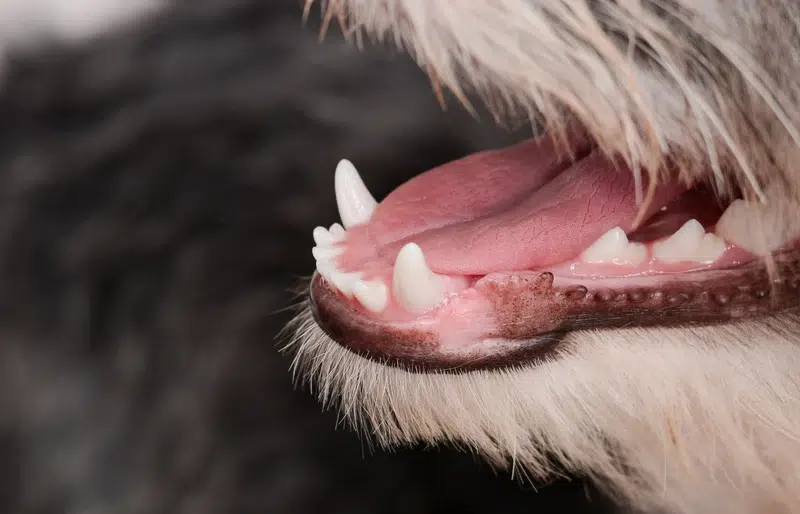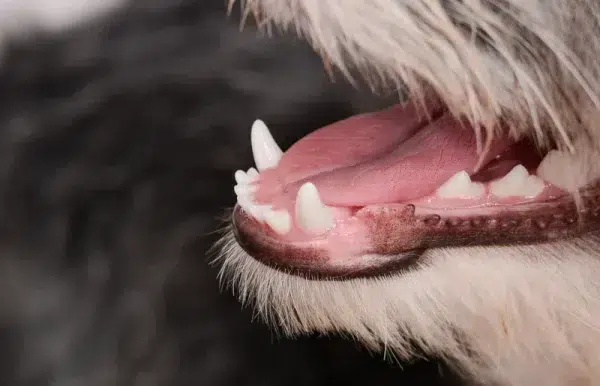There’s nothing pleasant about the way a dog’s breath smells. No matter how many dental chews you feed your dog and how much brushing you do, your dog’s breath is probably always going to stink a little bit. It’s normal for your dog’s mouth to smell like, well, dog breath. However, changes in how your dog’s breath smells can be concerning.
If you’ve noticed a metallic scent on your dog’s breath, here are some of the things that may cause it. Some of these causes are serious, and your dog should visit your vet if their breath starts smelling metallic.
The 3 Reasons Why Your Dog’s Breath Smells Metallic
1. Blood
The smell of blood is notably metallic and has been described as smelling like pennies. There are several reasons that your dog may end up with blood in their mouth, leading to a metallic smell. If they have a bleeding oral tumor or bleeding gums due to dental disease, they may have metallic breath.
Whether the blood is coming from your dog’s mouth or an external source, such as hunting a small animal or getting into a fight, blood can leave behind a strong metallic scent.
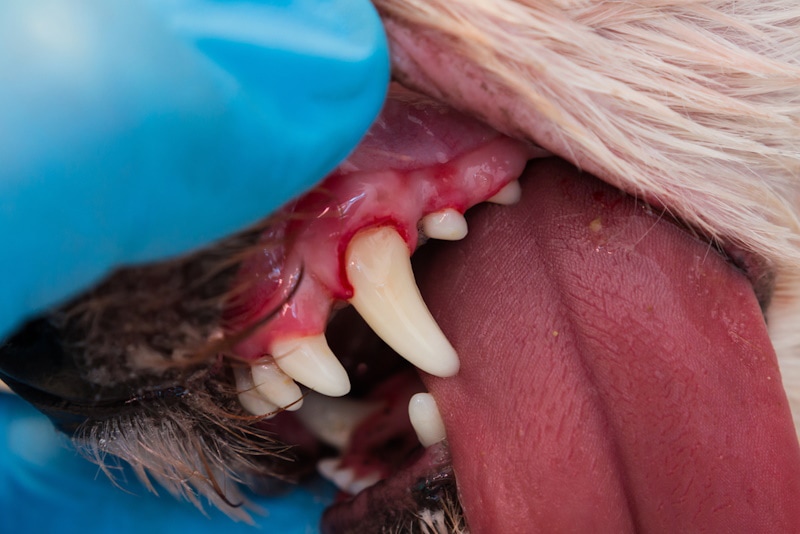
2. Anal Glands
Dogs have two small glands located right inside their rectum. They’re modified scent glands, so think of them as similar to the “stink” glands that skunks and ferrets have. Typically, a dog’s anal glands are emptied when they poop, but some dogs may struggle to express their anal glands naturally. This can be caused by multiple factors, including body weight, diet, anatomy, the presence of tumors, infections, and genetics.
Dogs that have full anal glands will likely begin to lick their behind in an attempt to ease the irritation. This results in small amounts of anal gland discharge getting into their mouth, which can result in a metallic smell on their breath. The anal gland smell is usually associated with a distinctly fishy smell, but it can have a metallic odor to it.
If you think your dog is having trouble with their anal glands, your vet can check the glands and manually express them if needed.
3. Kidney Failure
A metallic smell on your dog’s breath can indicate they are experiencing kidney failure. This metallic smell is caused by a buildup of waste products in the body due to the kidney’s inability to filter the waste products out. In healthy kidneys, waste products are filtered and excreted through urine, but the organs simply can’t function normally with kidney failure. The metallic smell associated with kidney issues also has a slight ammonia-like odor.
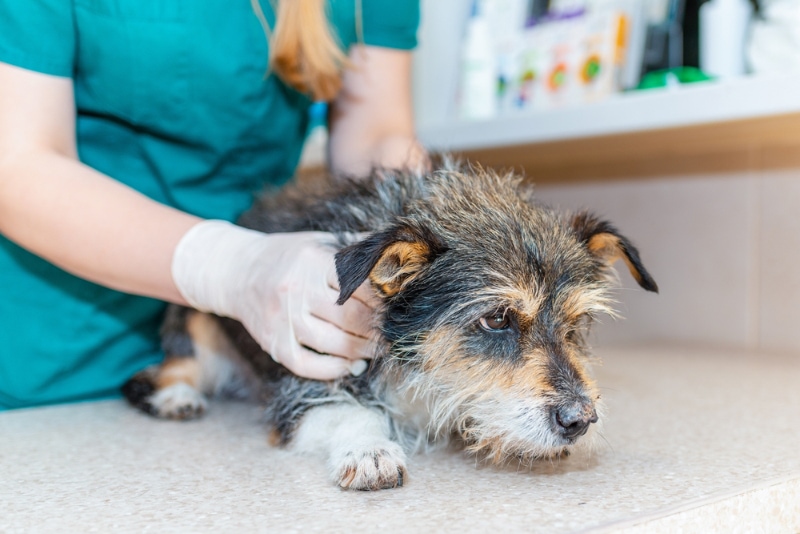
Preventing Bad Breath in Dogs
There’s likely nothing you can do to eliminate the unpleasant odors associated with your dog’s mouth, but you can work to reduce them. Regular home dental care can reduce bad breath, as well as give you an opportunity to thoroughly examine your dog’s teeth, gums, tongue, and mucus membranes.
The obvious ways to prevent bad breath include keeping them from licking their anal glands and not letting them eat poop. This is easier said than done with some dogs. If your dog is licking their anal glands a lot, it’s best to have them examined since they can become infected or develop abscesses.
Knowing how your dog’s mouth typically smells means you can tell when something smells different. Noting changes in your dog’s breath can help you catch problems with your dog early, allowing you to get them treatment for severe and life-threatening conditions.
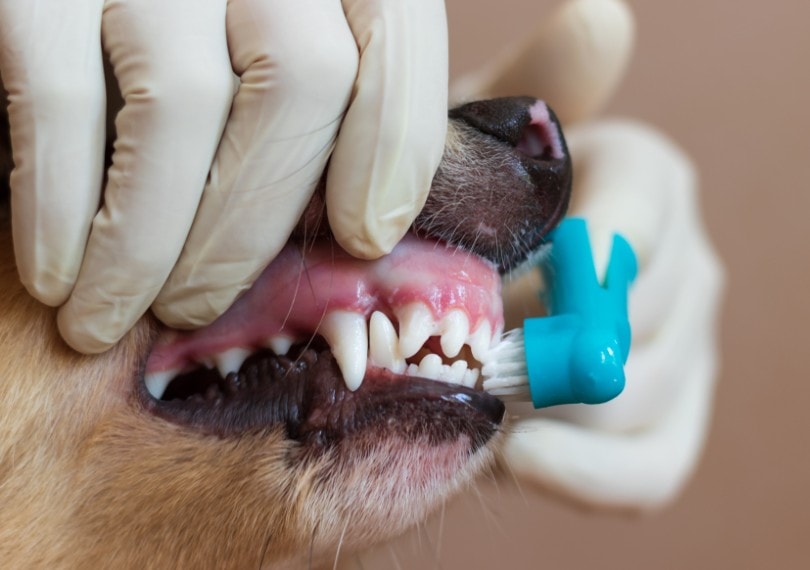

In Conclusion
Although some causes of metallic breath in dogs are easy to treat, others are deadly serious. If your dog develops metallic breath, check their mouth for bleeding. If you can’t find a cause, it’s time to visit the vet. Taking action and getting your dog to a vet as soon as unexplained metallic breath develops may seem extreme, but it can save your dog’s life.
Related Reads:
- Why Does My Dog Smell Like Maple Syrup? 6 Reasons & What to Do
- What Causes Puppy Breath & When Does It Go Away? Vet-Reviewed Facts
Featured Image Credit: laolaopui, Shutterstock

